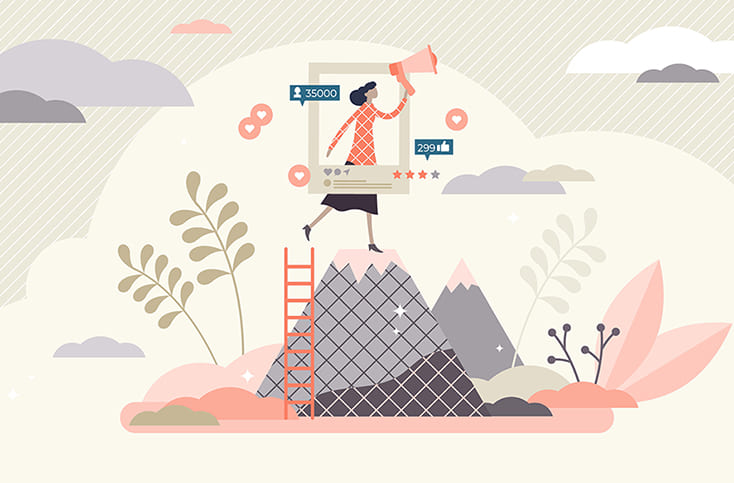June 24, 2020
By Kristen Fuller, M.D.

Mental health encompasses our emotional health, cognitive health and relationships. It includes taking care of and protecting ourselves so we can succeed in everyday life, taking care of others when they need us the most and overcoming obstacles. In other words, mental health is essential, and worth advocating for.
If we want to be advocates for those who are struggling with their mental health, we must first learn to be advocates for ourselves. This means being true to ourselves, loving ourselves and honoring ourselves, regardless of what our struggles are.
Mental health advocates are heroes — individuals who do not wear capes, but who work tirelessly every day to share their stories and help those who are struggling. They take risks and show their vulnerability by telling their truth in hopes of encouraging someone else.
Whether it is through a blog, social media, a book or a speaking engagement, these advocates stand up for others who do not have a voice. They remind us that we are not alone in our struggles. They remind us that we are not at fault. They remind us that there is light, healing and hope throughout this journey. They shatter stereotypes and stigma associated with mental illness.
As an example, my dear friend Daisy Martinez wrote a letter to herself on her social media account about her struggles with mental illness, and how she found the strength and courage to get help and love herself.
“What would I tell this 18-year-old Daisy holding her almost one-month-old baby next to her mom at her high school graduation?
You’re going to be alright. I know you’re scared. I know you’re hurt. I wish I could tell you that the upcoming years will get easier, but they will actually be your toughest years. However, you will get through it all and grow so much.
You will find the courage to leave the abusive relationship you’re currently in. You will find a way to thrive as a single parent. Your grades will drop. You will actually get into academic probation. You will get very depressed and start doing drugs. You will attempt suicide a few times, but this will [lead you] to receiving help.
You start to see a therapist. You stop doing drugs. You start to get your grades back up. You actually graduate from college and get into graduate school. You even start a non-profit. You will feel lost and like something is missing. That missing part is the love you need to give yourself.
You are loved so much and worthy of so many great things. You are beautiful, and I love you so much for your strength and courage. I wish I could hug you and tell you how amazing you are. Believe it! Believe in yourself. And please stop being so hard on yourself. Take it all one day at a time.
Take care of your health both physically and mentally. Surround yourself with people that help you grow and make you better. You don’t have to have it all figured out. You don’t have to have a plan for everything. Be free and let life flow. Be grateful for all that comes your way good or bad, it all comes for a reason.”
Daisy is a shining example of an everyday hero: a mental health advocate. She speaks for others who do not have a voice.
You do not have to share your deepest darkest secrets on social media to become an advocate. You can stand up for others by sharing your story privately with a friend, neighbor or loved one. You also don’t have to share your story if you’re not yet ready. You can also:
Together, we can change how the world views mental health. We can continue the mental health movement by speaking out, sharing our stories and showing others that they are not alone. Our societal perception of mental health, including mental illness, will not change if we do not take action to change it ourselves.
Kristen Fuller M.D. is a family medicine physician with a passion for mental health. She spends her days writing content for a well-known mental health and eating disorder treatment facility, treating patients in the Emergency Room and managing an outdoor women's blog. To read more of Dr. Fuller's work visit her Psychology Today blog and her outdoor blog, GoldenStateofMinds.
We’re always accepting submissions to the NAMI Blog! We feature the latest research, stories of recovery, ways to end stigma and strategies for living well with mental illness. Most importantly: We feature your voices.
LEARN MORENAMI HelpLine is available M-F, 10 a.m. – 10 p.m. ET. Call 800-950-6264,
text “NAMI” to 62640, or email. In a crisis, call or text 988 (24/7).